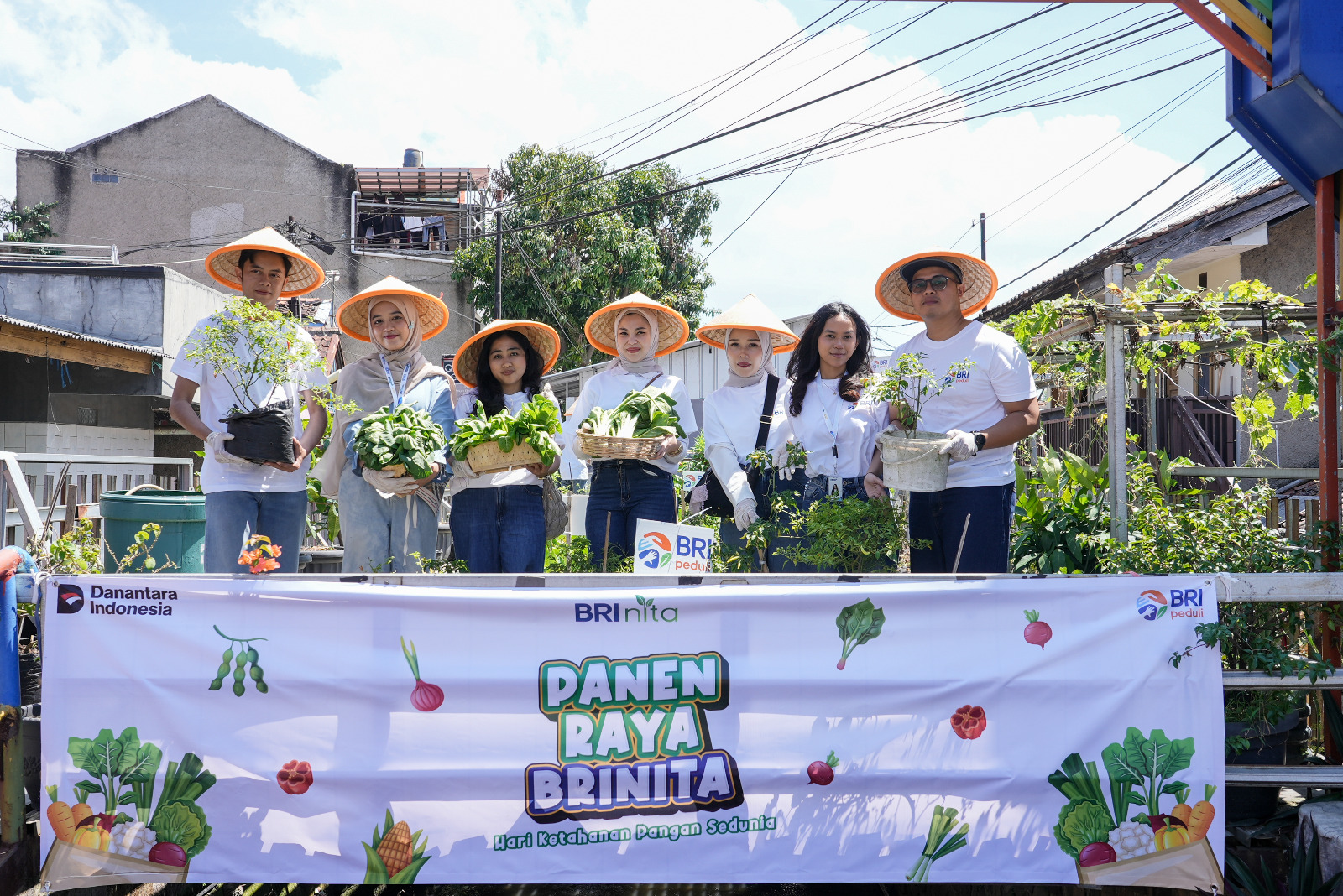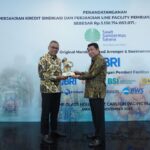As urban areas develop rapidly, the concept of urban farming emerges as an important innovation to optimize the use of unused land. Small plots can be utilized for farming and gardening, which can ultimately enhance food security in urban regions.
BRI Cares, as the umbrella for BRI’s Social and Environmental Responsibility Program, reaffirms its commitment to improving the environmental ecosystem and promoting food security. One of its initiatives is the BRInita Program, which involves farming using small plots in densely populated residential areas.
In commemoration of World Food Day, BRI Cares organized the BRInita Grand Harvest event at the Agro Tourism Garden of Pajajaran Farming Village in Bandung, West Java. The activity involved youth groups, Family Welfare Empowerment members, and local residents.
The Agro Tourism Garden of Pajajaran Farming Village is one of the distribution sites for the BRInita program by BRI Cares. In addition to providing infrastructure assistance such as greenhouses and urban farming seedlings, BRI also offers community empowerment training to help residents manage their own urban farming plots.
Various activities were carried out during the BRInita Grand Harvest, including socialization sessions aimed at educating the public about the importance of farming and utilizing nearby land.
There was also educational training on fruit cultivation to enhance participants’ knowledge and skills in properly cultivating fruits, enabling them to produce high-quality, nutritious, and economically valuable agricultural products.
The Grand Harvest event was not only a celebration of the community’s farming success but also a means to strengthen unity, foster a spirit of mutual cooperation, and raise awareness about the importance of maintaining local food security.
A representative stated that World Food Day serves as a reminder for BRI to reaffirm its commitment to sustainability and environmental support, as well as to emphasize the importance of innovation in addressing food security challenges, especially amid rapid urban growth.
“Through this activity, the community directly participates in the harvest, giving them a sense of ownership. The harvest can be used for family consumption, sold for additional income, or exchanged in social programs as a form of appreciation,” the representative said.
The urban farming initiative by BRI Cares is also expected to reduce environmental pollution, enhance greenery, and decrease household waste. At the same time, it represents a positive contribution by the community toward environmental balance.
It was further emphasized that urban farming is hoped to become a key pillar in achieving inclusive and sustainable food security. The implementation of BRInita also supports the achievement of the Sustainable Development Goals.
This program also aligns with the government’s objectives of strengthening national defense and security systems and promoting national self-reliance through self-sufficiency in food, energy, water, creative economy, green economy, and blue economy.
“On this World Food Day, let us support and develop urban farming as part of a modern solution to address food crises and climate change. Together, we can create healthy and sustainable cities for a better food future for all generations,” the representative added.
On another note, a representative from a local women’s group expressed that the Agro Tourism Garden of Pajajaran Farming Village serves as a platform for urban farming, allowing group members to engage in positive activities while addressing food availability for the group.
“Initially, we had no place to farm, but now we have a space. We are very happy and can enjoy the harvest together,” the representative shared.
Since its launch, the BRInita program has been implemented at 31 locations and has benefited 1,160 individuals. The program has contributed to an overall Human Development Index of 86.48% and a Women’s Human Development Index of 20.16%.
Additionally, the program has yielded 9,544.33 kg of harvested vegetables, 112 family medicinal plants, and contributed to an 11.27% reduction in stunting. The program has also benefited the environment by producing 3,982 kg of liquid organic fertilizer, 2,218 liters of eco enzyme, 64 processed fertilizer products, 80 kg of BSF maggots, and 238.61 kg of CO2-eq, contributing to greenhouse gas emission efficiency from hydroponic vegetable cultivation.






